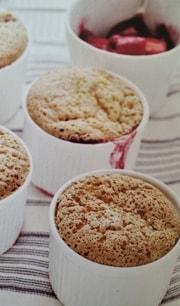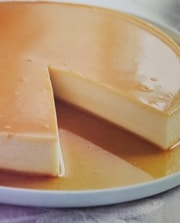New study reveals which nations are the worst online swearers—where do we land?
By
Maan
- Replies 26
When it comes to colourful language, Australia’s reputation certainly precedes it.
But how do we really stack up against the rest of the English-speaking world online?
Recent research has uncovered some unexpected findings about where Australians fit in the global swear-o-meter.
Stone the flamin’ crows! Despite our Aussie reputation for colourful language, a new study revealed we are not the worst offenders online when it comes to swearing.
Researchers believe there might be a practical explanation for this surprising result.
The University of Queensland analysed more than 1.7 billion words of online content from 20 English-speaking countries, searching for 597 vulgar terms.
Using computational linguistics, the team identified which nation’s people swear the most in online spaces.
Although Australians are known for their enthusiastic use of profanity, we ranked only third in online swearing, behind the US and Britain.
‘Some may find it disappointing,’ said Martin Schweinberger, the lead researcher from the university’s School of Languages and Cultures.
‘Australians really see vulgarity, swearing and slang as part of our culture – we’re very invested in it.’
Swearing has long been normalised in Australian everyday speech and even appears in tourism marketing.
For example, model Lara Bingle famously fronted the campaign featuring the phrase ‘so where the bloody hell are you?’
Source: Youtube/TourismAustraliaUSA
That 2006 advertisement was banned in Canada, removed from TV and billboards in Britain, and censored in Singapore.
An older campaign with the line ‘If you drink, then drive, you’re a bloody idiot’ has been running since the 1980s as a national road safety message.
Schweinberger suggested that Australians’ lower online swearing might stem from a more conservative approach on the internet.
He believed Aussies may prefer to save their swearing for face-to-face interactions.
‘Our study suggests Australians might still live up to our popular image of having unusually rich and inventive ‘bad’ language,’ he said.
‘Especially thanks to our very public and colourful airing of swear words – this is something that’s often remarked upon by overseas visitors to the country.’
This research was the first large-scale study to compare offensive language use across English-speaking nations.
Schweinberger noted the importance of understanding social context in language use for immigrants and language learners.
‘For language learners and immigrants, knowing how to adjust their language to different social situations is just as important as mastering grammar or vocabulary,’ he said.
‘Being able to understand when it’s appropriate to use humour, informal expressions, or even mild vulgarity can make a big difference in feeling included, building relationships, and navigating everyday life in a new culture.’
‘It’s not just about speaking correctly–it’s about speaking appropriately.’
The findings were published in the science journal Lingua.
In a previous story, we took a look at how Australians stacked up on the global happiness scale.
That ranking also raised a few eyebrows for where we landed.
If you missed it, it’s worth a read.

With Aussies holding back online but letting loose in person, do you think we’re just being polite on the internet—or saving the good stuff for the pub? Let us know your thoughts in the comments.
But how do we really stack up against the rest of the English-speaking world online?
Recent research has uncovered some unexpected findings about where Australians fit in the global swear-o-meter.
Stone the flamin’ crows! Despite our Aussie reputation for colourful language, a new study revealed we are not the worst offenders online when it comes to swearing.
Researchers believe there might be a practical explanation for this surprising result.
The University of Queensland analysed more than 1.7 billion words of online content from 20 English-speaking countries, searching for 597 vulgar terms.
Using computational linguistics, the team identified which nation’s people swear the most in online spaces.
Although Australians are known for their enthusiastic use of profanity, we ranked only third in online swearing, behind the US and Britain.
‘Some may find it disappointing,’ said Martin Schweinberger, the lead researcher from the university’s School of Languages and Cultures.
‘Australians really see vulgarity, swearing and slang as part of our culture – we’re very invested in it.’
Swearing has long been normalised in Australian everyday speech and even appears in tourism marketing.
For example, model Lara Bingle famously fronted the campaign featuring the phrase ‘so where the bloody hell are you?’
Source: Youtube/TourismAustraliaUSA
That 2006 advertisement was banned in Canada, removed from TV and billboards in Britain, and censored in Singapore.
An older campaign with the line ‘If you drink, then drive, you’re a bloody idiot’ has been running since the 1980s as a national road safety message.
Schweinberger suggested that Australians’ lower online swearing might stem from a more conservative approach on the internet.
He believed Aussies may prefer to save their swearing for face-to-face interactions.
‘Our study suggests Australians might still live up to our popular image of having unusually rich and inventive ‘bad’ language,’ he said.
‘Especially thanks to our very public and colourful airing of swear words – this is something that’s often remarked upon by overseas visitors to the country.’
This research was the first large-scale study to compare offensive language use across English-speaking nations.
Schweinberger noted the importance of understanding social context in language use for immigrants and language learners.
‘For language learners and immigrants, knowing how to adjust their language to different social situations is just as important as mastering grammar or vocabulary,’ he said.
‘Being able to understand when it’s appropriate to use humour, informal expressions, or even mild vulgarity can make a big difference in feeling included, building relationships, and navigating everyday life in a new culture.’
‘It’s not just about speaking correctly–it’s about speaking appropriately.’
The findings were published in the science journal Lingua.
In a previous story, we took a look at how Australians stacked up on the global happiness scale.
That ranking also raised a few eyebrows for where we landed.
If you missed it, it’s worth a read.
Key Takeaways
- Australia ranked third in online swearing behind the US and Britain.
- Researchers found Aussies may prefer swearing in person over using it online.
- Profanity is deeply embedded in Australian culture and advertising history.
- The study showed understanding when to use informal language is vital for social integration.
With Aussies holding back online but letting loose in person, do you think we’re just being polite on the internet—or saving the good stuff for the pub? Let us know your thoughts in the comments.








